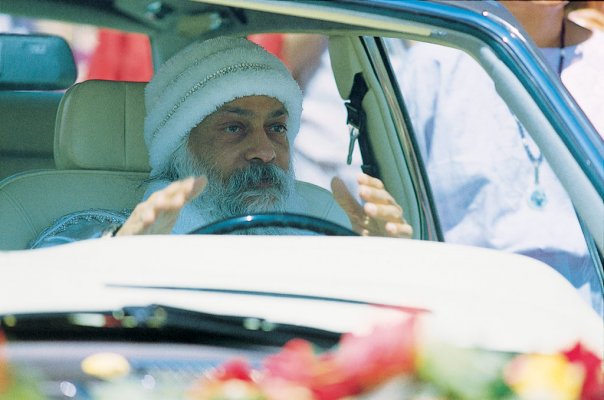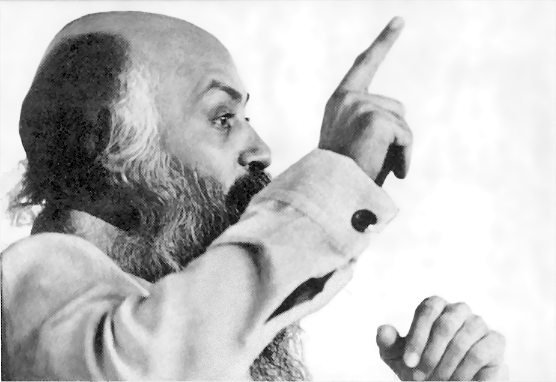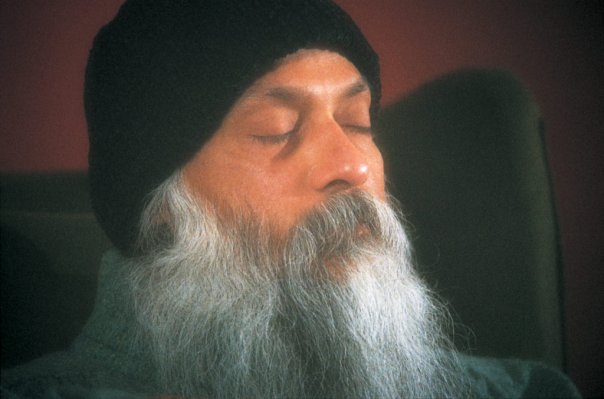Osho Quotes on Judging and Judgments
- Judgment is one of the crimes. We go on judging other people, and we do the same with ourselves. We go on judging our thoughts, our actions, what is good, what is bad, what should have been done, what should not have been done; and we are constantly creating conflict and duality.
- Meditation is a kind of watchfulness and a sitting, just looking around with no purpose — because there is no purpose. If anybody passes by you have to look without any purpose, without any judgement; you have just to see. That is another quality of meditation: to look at things without any kind of prejudice — good or bad — without any judgement. And then sitting there the whole day doing nothing the energy settles — it is not hectic; it rests.
- To go beyond judgments of good and bad is the way of watchfulness. And it is through watchfulness that transformations happen. This is the difference between morality and religion. Morality says, “Choose the right and reject the wrong. Choose the good and reject the bad.” Religion says, “Simply watch both. Don’t choose at all. Remain in a choiceless consciousness.”
- The whole phenomenon of religion depends on this possibility, that man can take a jump out of the mind. And that’s what meditation is all about: the art of getting out of the mind. And it is not difficult at all, it is very simple. Just watch the mind, with no judgement. Don’t be a judge, just be a witness, mirrorlike.
- The mind that continuously goes on judging creates anguish in you. But we are taught to judge. Even those with whom we have no concern, we go on judging: this man is good, that man is bad. What business is this, what concern is it of yours? And if you knew the whole story of the man, perhaps you would have said that this act you had thought was bad was absolutely inevitable. Without this act there would have remained something incomplete in the whole story.
- Just by being a simple witness of your thought processes. That’s my method of meditation. It is not a prayer because there is no God to pray to. It is simply sitting silently, witnessing the thoughts passing before you. Just witnessing — not interfering, not even judging, because the moment you judge you have lost the pure witness. The moment you say this is good, this is bad, you have already jumped into the thought process. It takes a little time to create a gap between the witness and the mind. Once the gap is there, you are in for a great surprise: you are not the mind, you are the witness, a watcher.
- The man of understanding, meditation, is not a man of control — just the opposite. He is a watcher. And if you want to watch, you have to be absolutely nonjudgmental. The man who controls is judgmental, continuously condemning, “This is wrong”; continuously praising, “This is good, this is evil, this will lead to hell, this will lead to heaven.” He is constantly judging, condemning, praising, choosing. The man of control lives in choice, and the man of understanding lives in choicelessness.
- Have you ever thought about it — about what you are doing? You go on judging, not knowing anything even about yourself, which is the nearest point of consciousness to you. Who is more close to you than yourself? — and you have not known even that.
- You are always judging from the past. The past is no more, it is absolutely irrelevant, but it goes on interfering. You go on judging according to it; you go on saying, “This is right and that is wrong,” and all those ideas of right and wrong, all those judgments are coming from something which is dead. Your dead past remains so heavy on you that it does not allow you to move. Drop the past completely and you will be surprised: much of the suffering has disappeared.
- Remember continuously, because the struggle is long, and the journey is arduous. Many times you will fall and forget, many times you will start judging. Many times you will start getting identified with this or that, many times the ego will assert itself again and again. Whenever the ego asserts itself, whenever identification happens, whenever judgment arises, immediately remember: watch, simply watch, and there will be understanding. And understanding is the secret of transformation. If you can understand anger, immediately you will be showered with compassion. If you can understand sex, immediately you will attain to samadhi. ‘Understanding’ is the most important word to remember.
- The only possibility of being blissful is to discover your godhood, and the method is meditation. By meditation I mean watching your mind, simply watching your mind — not doing anything, not interfering with the mind, not judging — remaining absolutely silent and looking at the mind, whatsoever goes on: the traffic of thoughts, desires, memories — aloof, cool, just looking at it unconcerned, detached. Slowly slowly that traffic disappears a window opens into god. You become aware of a godliness which was always there, within and without, but of which you were not aware. You were fast asleep.
- You can become enlightened by becoming more conscious, more of a witness. Be less of a judge and you will be surprised that when you become a witness and you don’t judge yourself, you stop judging others too. And that makes you more human, more compassionate, more understanding. The man who judges himself continuously is bound to judge others too. Even more — he will be cruel, he will be hard on others. If he condemns himself for something, he will condemn others even more; he will always be looking for faults. He will never be able to see the glory of your being; he will become too concerned with trifles, with trivia. He will become too concerned with your small acts.
- Enlightenment happens only in that moment when there is no complaint in you, when you are not going anywhere, not desiring, not condemning, not judging. You simply exist and with total acceptance. This moment there is enlightenment.
- The message is drop comparing, drop judging; otherwise you will remain miserable, and just because of your judgments and comparisons. Look at life without being a judge. Who are you to judge? What do you know about life? What do you know even about yourself? Who are you to judge? Judgment comes from the idea that you know, judgment is knowledgeability. Look at life with a state of not-knowing, through a state of not-knowing, look at life through wonder — and suddenly all is perfect. Yes, sometimes it is cloudy, but it is perfect. And sometimes it is sunny and it is perfect. And sometimes it rains and sometimes it doesn’t rain, but it is perfect. As it is, it is a blessing. To be in tune with this blessing is to be prayerful.
- Wisdom comes from watchfulness; not by study but by awareness, not by concentration but by meditation. One has to be just open to this infinite splendor called life. One has to open to the earth and to the sky. One has to be open to everything, each and everything. Without judgement, one has to be open; then wisdom comes.
- You hear but you don’t listen. You will have to learn how to listen. Listening means being utterly silent, not interpreting, not judging, not evaluating — neither for nor against — just being present.
- If you are non-judging, not taking any moral standpoint, simply observing facts as they are, not interpreting them according to yourself, then you cannot be judged. You are transformed completely. Now there is no need for YOU to be judged by any divine power — there is no need! You have become divine yourself; you have become God yourself. Be a witness, not a judge.
- The whole emphasis is just on being alert, that’s all, so that nothing passes without your knowledge. You don’t do anything to the facticity of life: you don’t touch it, retouch it, you don’t project anything. Life is no more a screen, and you are no more a projector. You are simply witnessing, whatsoever it is, with no judgement on your part of good or bad, beautiful or ugly.
- The mind is constantly involved in thinking, in judging, in evaluating. Its whole function seems to be to keep you involved in thoughts, which are nothing but soap bubbles — or perhaps soap bubbles have more substance to them than your thoughts.
- What is wrong in some small idiotic things? Why can’t you laugh and enjoy them? All the time you are judging what is right, what is wrong. All the time you are sitting in the seat of a judge, and that makes you serious.
- If you want to improve on existence, on other people, you cannot be at ease with yourself. Your own judgments will kill you. You have never thought about it … whenever you are judging somebody, you are judging yourself also; if you condemn somebody as a thief, you are condemning yourself also. You may have have done many kinds of stealing — you may have stolen thoughts from other people, you may have stolen hypotheses from other people.
- Jealousy is not seeing a simple fact — that you have been taught to see yourself as inferior to someone, as superior to someone. And you have become so unconscious of it that you are constantly judging people as inferior, as superior, as good, as bad, right, wrong. Don’t judge. Everybody is just himself. Accept him as he is. But this is possible only if you accept yourself as you are, with no shame, with no feeling of worthlessness. Jealousy is not seeing a simple fact — that you have been taught to see yourself as inferior to someone, as superior to someone. And you have become so unconscious of it that you are constantly judging people as inferior, as superior, as good, as bad, right, wrong. Don’t judge. Everybody is just himself.Accept him as he is. But this is possible only if you accept yourself as you are, with no shame, with no feeling of worthlessness.



